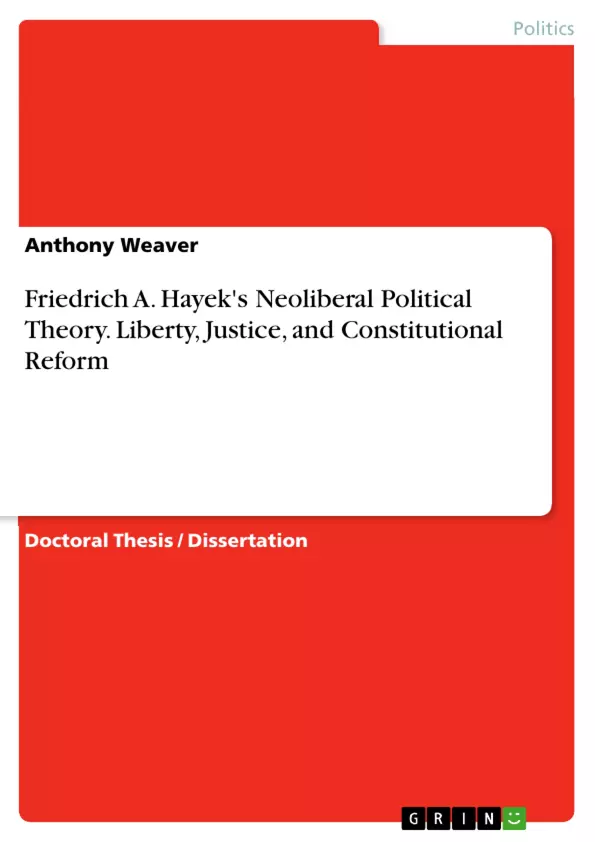The present dissertation is a systematic critical examination of the Austrian economist Fredrich A. Hayek's (1899-1992) neoliberal political theory, drawing on all relevant parts of the complex interdisciplinary oeuvre upon which it is founded. For the sake of innovation, the thesis is essentially an internal critique. I concentrate on Hayek's system of ideas in its own terms, rather than critical comparison with rival political traditions. The present dissertation is divided into two parts, both of which are roughly evenly divided between exposition and criticism, with the latter comprising an assessment of both Hayek and his critics. Following the introductory chapter, part (1) consisting of chapters 2-4 provides an exposition and critique of the philosophical foundations of Hayek's political theory including his evolutionist philosophy of mind, epistemology and philosophy of history. Then, in part (2), consisting of chapters 5-7, I critically examine the main components of Hayek's political theory including his concepts of liberty, justice, democracy and radical constitutional reform proposals in the light of the discussion and conclusions reached in the first part of the thesis.
- Quote paper
- Anthony Weaver (Author), 2004, Friedrich A. Hayek's Neoliberal Political Theory. Liberty, Justice, and Constitutional Reform, Munich, GRIN Verlag, https://www.grin.com/document/1497441



